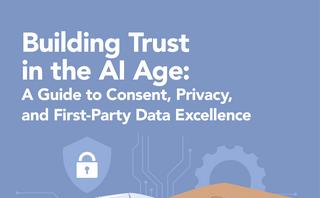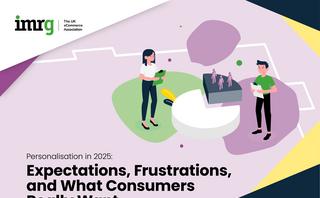133 notes tagged as ["privacy"]
Filter your results by choosing one or more tags below or type your query in the search field above.
-

Verve has released its [In-app user privacy report 2025](https://www.businessofapps.com/in-app-user-privacy-report/?utmsource=newsannouncement&utmmedium=download&utmcampaign=verve-hosted-download-engagement)_, a comprehensive study surveying 4,000 mobile users across the US and UK. The report examines evolving consumer attitudes toward data privacy, personalized advertising, and the value exchange between users and publishers.
-

Whether third-party cookies finally crumble, they are creating compliance headaches—and strategic blind spots—for publishers and marketers. As Bettina Lippisch, Omeda’s VP of Privacy and Data Governance, pointed out during her talk at OX8, cookies are more than tech—they’re potentially capturing a sharing personal data of your site visitors. And the laws are catching up.
“Cookies collect PII. What you looked at, where you went, how long you were there, where you logged in from—it’s all data. And it’s all subject to the same rules.”
-

Artificial intelligence is transforming marketing —but without trust, transparency, and strong privacy practices, innovation can backfire. As third-party cookies disappear and privacy regulations expand, first-party data is no longer optional —it’s your most valuable competitive advantage.
This comprehensive guide shows you how to harness AI’s potential while safeguarding customer trust, maintaining compliance, and strengthening relationships through consent-first, privacy-by-design strategies.
-
You are currently enjoying the free trial mode which gives only back 3 results for each of your searches.
Click on Reset Search Tags to try another search.
Free NewsletterOnly paid members can get full access to the most recent content, create their own tags & personal folders, assign search results to specific projects and much more… all of this for less than 99c a day.
-

Digital advertising in the cookieless world
Clip source: Digital Advertising in the Cookieless World | Twilio Segment
Digital Advertising in the Cookieless World
The rules of digital advertising are being rewritten. Both browsers and government regulators have been prioritizing user privacy, which we’ve seen in recent initiatives like Chrome phasing out of third-party cookies, and Apple’s iOS updates.
To adapt to this new digital advertising landscape, entire strategies need to be reworked. Our new e-book takes an in-depth look at the future of digital advertising, the necessity of first-party data, and the pivotal role of a CDP.
-

GDPR and ePrivacy whitepaper
GDPR was a once in a generation opportunity to rethink data protection laws across Europe. For businesses working within the digital industries, it’s critical they both grasp the intricacies of GDPR and ePrivacy. In this whitepaper we attempt to explain the implications for affiliate marketing and offer practical guidance for publishers and advertisers.
-

Personalization in 2025
This report is designed to help you with creating a strong personalisation strategy in 2025 and beyond. We surveyed consumers about their likes and dislikes when it comes to personalisation and what they want from retailers in the future. We also carried out some retailer-led research to reveal their biggest challenges with implementing personalisation and their current approaches.
-

Balancing personalization and privacy in customer experience
Customers are more anxious than ever. Keeping personal information secure is a growing source of concern amidst constant news of data breaches, AI mishandling of sensitive information, and the relentless digital scams that affront us. For years privacy concerns were the responsibility of the customer to manage, but as every organization expands their reach into more dynamic digital marketing and CX, customers can’t be expected to shoulder it all. Failing to give digital security the appropriate resources and consideration is the fastest way to lose customer trust, and when customer trust is lost to security failures, it’s almost impossible to win back.
-

The state of the third party cookie
Many expected 2024 to mark the end of third-party cookies, but the timeline shifted when Google sunset its Privacy Sandbox initiative without a definitive alternative in place. Advertisers continue to rely on cookies for targeting across the open web. This reliance, paired with an increasingly fragmented ecosystem, has made it harder than ever to connect with audiences effectively.
So we dug into the data. We wanted to know, for companies still relying on cookies, how effective is their targeting strategy? Read our E-Book to answer the questions you want to know:
-

The state of consumer data privacy legislation in 2025
Stay on top of the latest news and updates when it comes to consumer data privacy legislation in the US and abroad. Recent studies reiterate the critical importance of data protection in maintaining consumer trust. According to PwC’s 2024 Voice of the Consumer Survey, 83% of respondents consider data protection a top priority influencing their trust in brands. Additionally, Cisco’s 2024 Consumer Privacy Survey revealed that 67% of consumers have reviewed or updated their privacy settings on various apps and platforms in the past year, reflecting growing awareness and concern over data privacy. The CMSWire State of Digital Customer Experience 2024 report finds that with generative AI, organizations consider the data privacy (58%) to be the top risk ahead of cybersecurity problems (49%), protecting intellectual property (48%) and the related risk around copyright issues (plagiarism at 41%).
-

Generational divides in email: Survey results
Litmus is a proud industry leader, trusted by 700,000 marketing professionals including 80% of the Fortune 100. In order to help email marketers better understand the marketing landscape, we surveyed 1,000 U.S. consumers about their email preferences and summarized some of the key findings below.
Email quantity
67% of consumers say they receive too many daily emails.
81% of Baby Boomers say they receive too many emails.
-

2024: The year in privacy — Key lessons and emerging issues
In a realm as rapidly evolving as data privacy, security, and governance, Exterro’s bi-weekly data privacy alerts give professionals the information they need to ensure their organizations prepare for and remain compliant with the expectations of both regulators and increasingly aware consumers. In this whitepaper, we’ve selected some of the most important and most popular data privacy alerts from 2024, covering topics from regulatory efforts to govern the rise of generative AI technology to increasing pressure on organizations collecting, holding, and processing consumer data from state and federal regulators in the US.